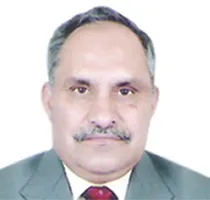It is time to look at the Uri setback through a rational and reasoned perspective, shorn of hyperbole. In that sense, Prime Minister Narendra Modi’s statement that the perpetrators will not go unpunished, is significant as people await what form it takes. The Pakistani establishment must be ruing that terrorist action was so successful, especially in terms of casualties caused, which was certainly unexpected and unpardonable, whatever be the reason.
To start with, let’s be clear on three aspects. First, lapses on the part of the Army establishment located at Uri are undeniable. Details of these will emerge in due course of time after the mandatory court of inquiry. In operations, such reverses are inevitable and this time, the other side got lucky. It certainly didn’t warrant either the Defence Minister or the Army Chief rushing post-haste to the scene of action to gather facts first hand.
There is a well-established chain of command that must be given the time and space to delve into the matter and do its job without interference, without having the Army Chief or the Defence Minister breathing down their neck. One hopes that those responsible for the lapses that may have occurred, will be held accountable and measures to deal with systemic flaws that resulted in this embarrassment initiated at the earliest.
Second, Modi, with his penchant for hard talk, has painted himself into a corner with his earlier rhetoric, especially when the BJP was in the opposition. He has little choice now, but to look and act tough, if he is to preserve any shred of credibility of being seen as a no-nonsense and tough leader. Therefore, whether he wants to or not, he may be forced to respond assertively, regardless of the consequences that it may entail on the ongoing economic regeneration in progress, which is Modi’s key result area. One hopes the Government initiates substantive steps to deal with the issue rather than resorts to showmanship, bluster or disinformation.
Third, the past decade and a half since the Kargil conflict, Governments have been brutal on the Armed Forces. In the first instance, the findings and recommendations of the Kargil Committee Report and the Group of Ministers have yet to be implemented in a comprehensive manner. Sadly, other than in matters pertaining to intelligence, only lip service has been paid to most of the other important recommendations pertaining to the Armed Forces, such as integration of the Service Headquarters with the Ministry of Defence and the appointment of a Chief of Defence Staff. The UPA Government’s subsequent lack of focus on modernisation has left the military dangerously weakened, leaving large voids in manpower, weapons, ammunition and critical equipment. We are hugely deficient in basic equipment like ballistic helmets, bullet-proof jackets, thermal imagers and assault rifles, leave aside artillery guns, tanks and aircraft.
Added to this has been the manner in which the present dispensation has tackled the issue of One Rank One Pension and the ongoing confrontation over the acceptance of the recommendations of the 7th Central Pay Commission. Anger and frustration against the Government’s action to lower status of the military has lowered morale, which has been further corroded by biased actions on the part of the senior hierarchy. This has resulted in ongoing litigation within the officer community over distribution of ranks to officers from the logistics streams. Even higher ranks has not been spared with reports of internecine conflicts due to bias in selection of officers for important courses, promotions to two star and three star ranks and in key appointments. None of this helps, and, all in all, while the Armed Forces may not yet be considered unfit for war, they are certainly not in great shape either.
This brings us to the issue of how do we respond to the Uri fiasco, especially given the fact that both India and Pakistan are nuclear weapon states. There is little doubt that India has to respond if its military is not to lose either credibility, both domestically and internationally, or suffer further erosion of morale. This response has to be kept well below the nuclear threshold but has to be sufficiently public so that it is clearly visible to domestic and international audiences. Moreover, all of these actions have to be within the Armed Forces’ existing capabilities, which, as has been already noted, is not at its peak. Expectations also have to be managed given the fact over the past two decades, our response to Pakistan-supported terrorist actions has been tepid, to say the least. Therefore, any robust response will be bound to elicit a strong reaction from Pakistan, which our political and security establishment must factor in and be prepared to face.
Thus, if substantive actions have to be initiated to ensure that Pakistan is forced to desist from interfering within Indian territory, either directly or through proxies, the Government will have little choice but to look at a series of actions, including diplomatic efforts to declare Pakistan a pariah state. Actions to degrade Pakistan’s economic potential must also be initiated, which may well include placing hurdles that impact the Indus water treaty, as some have suggested. In military terms, action should be initiated, both in the short term and spread over the medium to long term. In the short term, this would require the launching of a symbolic cross-border punitive action, preferably against a terror camp or a Pakistani military establishment that may have provided assistance to the militants. The latter should be easy to pinpoint given that the GPS used by them have been located and information of routes extracted.
In the medium and long term, the Line of Control and, if necessary, the International Boundary, must be activated with proactive offensive actions being undertaken on a regular basis to restrict, if not eliminate, the militants’ ability to infiltrate at will. Counter-infiltration operations can no longer remain purely defensive exercises within our own territory. The Government must also look to provide required covert support to Baloch freedom-fighters in terms of moral, material and financial sustenance. Actions must also be undertaken to target and eliminate the jihadi leadership within Pakistan to ensure it is no longer able to move around openly as it does today. In this context, rallies to garner recruits and funds must be seen as logical targets of choice, especially those conducted close to our border. It must be made clear to the Pakistani establishment that our long-term efforts would be directed at breaking up Pakistan internally unless it is willing to come to the negotiating table over Kashmir and work towards a peaceful resolution.
It would be fair to conclude that the architect of Pakistan’s policy of interference in our country, the military, does not think in this manner, as its primacy within Pakistan is dependent on keeping alive hostility against India.
We have little choice but to take on the school bully who has been getting away till now because nobody was willing to stand up to him. It is time that the Pakistan Army is made to pay, whatever the consequences. We should certainly not be taken in with by its constant threats of nuclear Armageddon.
This article originally appeared in The Pioneer.
The views expressed above belong to the author(s). ORF research and analyses now available on Telegram! Click here to access our curated content — blogs, longforms and interviews.

